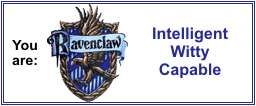 Misquoting Jesus
Misquoting JesusThe Story Behind Who Changed the Bible and Why.
By Bart D. Ehrman Harper Collins 2007
Website
As most of you may have figured out by now, I was raised in the Protestant church, but quit before I was 20. But I still love reading books about apologetics. The latest one I have recently finished was about how the Bible was really put together and that yes there are mistakes in the Bible.
Ehrman's latest book, "Misquoting Jesus: The Story Behind Who Changed the Bible and Why," has become one of the unlikeliest bestsellers of the year. A slender book of textual criticism, currently at No. 16 on the New York Times bestseller list, it casts doubt on any number of New Testament episodes that most Christians take as, well, gospel. Source
The first thing we need to understand is that NOONE has access to the very first gospels and letters as they were written. Everything in the New Testament today is a copy of a copy of a copy of a copy of a copy (etc etc) and because the scribes copying these books, were only human, mistakes did creep in. Some errors were accidents, others were deliberate where a word was changed or added to make things clearer. So when we are told that the earliest gospels we have are from the 2nd century after Christ - these are not the original writings.
The book starts off with Ehrman's personal story of how he was raised in a (lukewarm) Episcopalian church, had a "born again" experience as a teenager, and after graduation, he enrolled at Moody Bible Institute in Chicago where he learned the basics of Textual Criticism. Then he went to Wheaton College to finish his degree, and later enrolled at Princeton Theological Seminary. While he was at Princeton, Ehrman wrote a paper on the gospel of Mark - where Mark talks about Jesus citing the scriptures (1 Samuel 21) where King David ate the show bread from the temple on the sabbath during the tine of Abiathar the High priest. But when one looks at the chapter in 1 Samuel, it mentions that Abimelech was the high priest, not Abiathar. Ehrman wrote a very convulated paper using the meanings of the greek words to show why Mark used a different name. When he got the paper back, the professor had written a single line of comment. Maybe Mark just made a mistake. Ehrman had to think about this for a while, but eventually he had to admit that yes maybe Mark did make a mistake, Thats when the floodgates opened.
Ehrman started looking at all the errors in the New Testament, and found lots of them.
Ehrman later felt compelled to give up his beleif that the Bible was the inerrant word of god, although he did remain a christian for a while. He was eventually driven away from christianity (and now says he is an agnostic) because he could not reconcile the pain, suffering, wars, disease, pollution, natural disasters [and other bad things that happen to the world's population] with a loving and kind God as christians continue to claim.
Now this personal story only takes up one chapter. The rest of the chapters are taken up with many many examples of how the books of the new testament were copied and how words and phrases were changed even amongst the earliest manuscripts that do survive. This is not a long book,(just 220 pages) but it is detailed.
When I left the church over 20 years ago, I searched for a replacement in many different places. I even joined a cult church for a brief time, but that was not the answer. I formed my own beliefs, and so believing that noone else had the same set of beliefs, I stopped looking for answers and continued to live my life. In the last few years since I came to Canada, I have discovered that my personal beliefs do have a name. I am a Deist. See Deism.
(wikipedia)
Deism is a religious philosophy and movement that derives the existence and nature of God from reason and personal experience. This is in contrast to fideism which is found in many forms of Christianity.[1] Islamic and Judaic teachings hold that religion relies on revelation in sacred scriptures or the testimony of other people as well as reasoning.
Deists typically reject supernatural events (prophecy, miracles) and tend to assert that God does not intervene with the affairs of human life and the laws of the universe. What organized religions see as divine revelation and holy books, most deists see as interpretations made by other humans, rather than as authoritative sources. Deists believe that God's greatest gift to humanity is not religion, but the ability to reason.









No comments:
Post a Comment